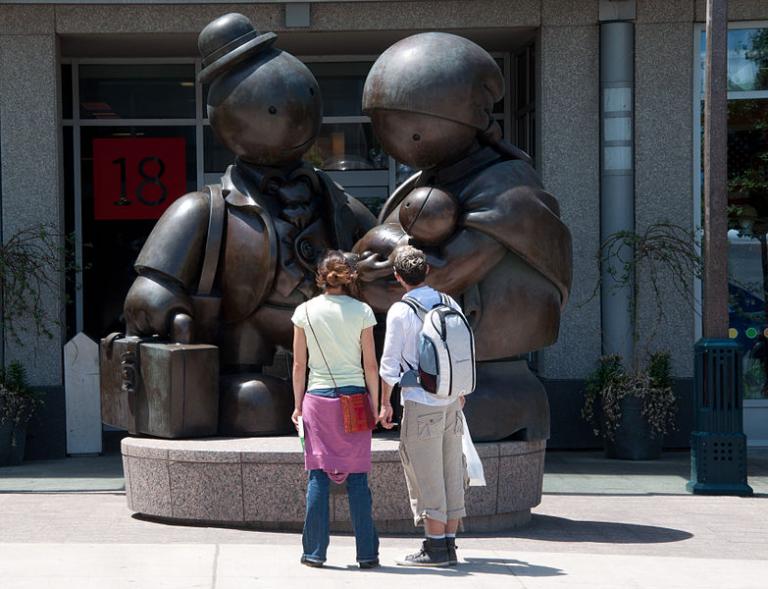Was it just last month that vocal pro-lifers were denouncing the British courts for their violation of parental rights in the case of little Alfie Evans? Was it so recently that I was being harassed with demands that I make a statement on the issue?
Perhaps it seems longer ago because so many who were up in arms about parental rights have suddenly done an about-face and are now asserting that the state has a right to do anything it deems necessary to protect its borders. We are hearing arguments that those who are “illegal” (an unfortunate and dehumanizing term to slap on any person) have no rights – or, at least, not the same ones as we “legal” citizens have. The popular idea that rights are given by God appears to have vanished, too.
When the debate over Alfie Evans was at its hottest, I made a statement with great reluctance. I was reluctant, partially, because I don’t believe we should even appear to capitulate to the demands of those whose requests for “clarification” are not in good faith. But I was also reluctant because it was a complex situation and one on which, as a person with no medical training, on the other side of the ocean, I was not qualified to speak.
I wrote then:
We believe that all available services must always be offered to protect the life and health of any human, however small or poor or vulnerable. But we also recognize that at some point, the only services that can really help are palliative. If I were a physician attending to little Alfie Evans, I might be able to pronounce on which of these cases this is. But I’m not, so I won’t.
There is also the issue of parental rights. Again, this could go two ways. Parents have a right to decide what is best for their children, but this right is limited by the right of the child to be protected from dangerous decisions. It is possible that the physicians are wrong in saying that it would be traumatic and painful for the baby to be flown to Italy. It is also possible that they are right, and speaking in the child’s best interest.
How is this situation, with refugee and asylum-seeking families being torn apart at our borders, different from the case of Alfie Evans?
- In the case of Alfie, the court ruled on the basis of a concern for what was best for the child. Agree of disagree with their conclusion, but the determination that the child could not be flown out of the country was made because it was not believed to be in his best interest to be moved, in his delicate condition. But in our case, the decision is being made not only without regard for the well-being of the children, but as a deliberate act of terrorism and punishment.
- In the case of Alfie, there was room for disagreement among responsible and humane persons. The argument was partially technical: is it likely that moving this child to a different hospital would help him? Or harm him? And it was partially ethical: how far do parental rights extend? My response to the second question is that parental rights are limited. If parents are harming children, they waive their right to make decisions for them. However, in cases where other parties are harming their children, parents have not only a right but a moral obligation to prevent this. And that is exactly what these asylum-seekers are doing.
With these factors in place, why is it that an ideological faction that claims to be defending life and family, and is usually anti-government and libertarian – don’t tread on me! – has swung about in the direction of defending totalitarianism against the right to life and the sanctity of family?
3. Well, I think the third major difference explains it. They aren’t “one of us.” They look different. They speak differently – at least, from the perspective of white American citizens. Alfie Evans was a white British child, with white English-speaking parents, so their image fit with the glossy, energetically marketed image of FAMILY that pro-life advocates are used to defending.
And in some cases, these advocates have been defending white English-speaking families specifically and overtly because of fear of demographic replacement. This is white ethno-nationalism under the guise of traditional morality. And, unfortunately, it has made itself pretty comfortable in the pro-life movement. Consider, for instance, that the fascist cult “Tradition, Family, Property” is welcome in the March for Life every year. Consider the recent case of the former pro-lifer turned open Alt Right racist.
I know that some who spoke out for Alfie Evans did so out of genuine concern for life and for the rights of the parents. Charlie Camosy, for instance, vocal in the Alfie Evans case, and has remained ethically and ideologically consistent in his stance in defense of immigrant children.
But in many cases, it is now clear that “right to life” and “sanctity of family” have really just been code for “right to white life” and “sanctity of white families” all along.
The Christian ethos has always emphasized the theology of Christ among us in the poor, the vulnerable, the exile. For those who find it a challenge to see “us” in “them,” I would suggest this is an important moment in our collective vocation, when we are all called to step beyond the limited ways in which we define who our neighbor is – to break down the barriers we place between ourselves and the “Other” in whom Christ comes.
image credit: https://commons.wikimedia.org/wiki/File:Immigrant_Family_Toronto_(1).jpg













